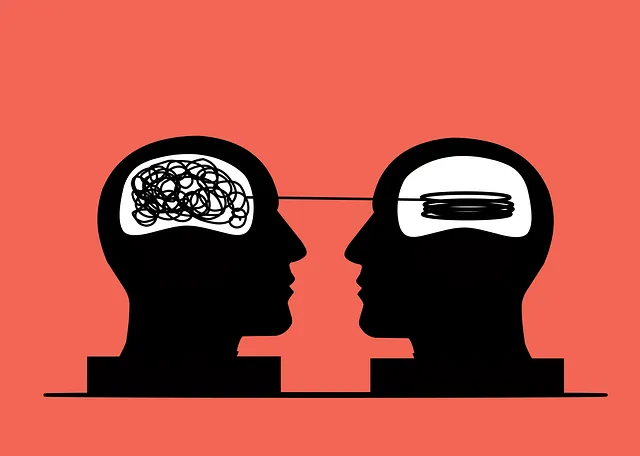Westminster Kaiser Permanente behavioral health providers prioritize Emotional Intelligence (EI) as a core competency for navigating complex patient emotions, fostering strong relationships, and enhancing clinical outcomes. Through self-awareness exercises, mental health education, empathy cultivation, and active listening, they create safe, supportive environments. Specialized assessments guide tailored interventions, incorporating community outreach, group therapy, counseling, and burnout prevention to improve EI across the organization. These strategies empower providers to offer compassionate, effective care, benefiting both patients and professionals.
Emotional intelligence (EI) is a transformative skill essential for Westminster Kaiser Permanente behavioral health providers. It empowers them to connect with patients, foster compassionate care, and navigate complex emotional landscapes effectively. This article delves into the fundamental aspects of EI, emphasizing self-awareness as a cornerstone. We explore strategies to enhance empathy, practical techniques for professional development, and tools to measure and nurture EI. By embracing these insights, providers can revolutionize patient experiences through emotionally intelligent care.
- Understanding Emotional Intelligence: A Key Skill for Westminster Kaiser Permanente Behavioral Health Providers
- The Importance of Self-Awareness in Building Emotional Intelligence
- Enhancing Empathy: A Cornerstone of Effective Communication
- Practical Strategies for Developing Emotional Intelligence in a Professional Setting
- Measuring and Nurturing Emotional Intelligence: Tools and Techniques
Understanding Emotional Intelligence: A Key Skill for Westminster Kaiser Permanente Behavioral Health Providers

Emotional intelligence (EI) is a vital skill for Westminster Kaiser Permanente behavioral health providers to master. It involves recognizing and managing one’s own emotions, as well as understanding and empathizing with others’ feelings. This ability is crucial in providing effective care, fostering strong patient-provider relationships, and promoting mental wellness among patients. By cultivating EI, these healthcare professionals can enhance their clinical practice, improve patient outcomes, and prevent burnout.
In the fast-paced and emotionally demanding environment of behavioral health, Westminster Kaiser Permanente behavioral health providers often encounter individuals struggling with complex emotional challenges. Developing strong self-care practices, including stress management techniques and mental wellness coaching programs, is essential to maintaining optimal EI levels. Such initiatives support not only the well-being of these providers but also their ability to deliver compassionate and skilled care, ultimately enriching the patient experience.
The Importance of Self-Awareness in Building Emotional Intelligence

Self-awareness is a cornerstone of emotional intelligence, enabling individuals to recognize and understand their emotions. This fundamental aspect is crucial for personal growth, as it fosters a deeper connection with one’s inner self. Westminster Kaiser Permanente behavioral health providers emphasize that by cultivating self-awareness, individuals can better navigate complex emotional landscapes. This involves recognizing triggers, understanding the root causes of feelings, and developing strategies to manage them effectively.
A key component of this process is mental health education programs design that focus on mood management and emotional healing processes. These initiatives empower people to become more attuned to their emotional cues, enabling them to make informed decisions in various aspects of life. Through self-awareness, individuals can enhance their relationships, improve communication, and foster a sense of resilience, all of which contribute to overall well-being, as advocated by Westminster Kaiser Permanente behavioral health providers.
Enhancing Empathy: A Cornerstone of Effective Communication

Empathy is a powerful tool that significantly enhances communication and relationships, especially within the context of behavioral health services at Westminster Kaiser Permanente. Behavioral health providers who cultivate deep empathy can create a safe and supportive environment for their clients, fostering open dialogue and encouraging self-expression. This, in turn, facilitates a more accurate understanding of an individual’s emotional experiences and needs.
By practicing active listening and putting themselves in their patients’ shoes, Westminster Kaiser Permanente’s behavioral health providers build a strong foundation for effective treatment planning. The development of inner strength through empathy allows professionals to anticipate and manage potential challenges, improving risk mitigation strategies. This ability is crucial for mental health professionals, ensuring they can deliver personalized care that addresses both the present symptoms and underlying emotional intelligence of their clients.
Practical Strategies for Developing Emotional Intelligence in a Professional Setting

Developing emotional intelligence (EI) is a valuable asset for professionals, especially those working in demanding environments like healthcare. Westminster Kaiser Permanente behavioral health providers can significantly benefit from enhancing their EI skills to improve patient care and team dynamics. One practical strategy is to incorporate regular self-reflection exercises into daily routines. This involves taking time to acknowledge and process emotions, both positive and negative, which fosters a deeper understanding of one’s own emotional triggers and responses.
Additionally, engaging in active listening during interactions with colleagues and patients can significantly boost EI. Westminster Kaiser Permanente behavioral health providers should focus on fully concentrating on the speaker, paraphrasing their sentiments to ensure comprehension, and asking thoughtful questions to clarify emotions and perspectives. These communication strategies not only strengthen relationships but also enable more effective problem-solving and conflict resolution. The Community Outreach Program Implementation at Westminster Kaiser Permanente can serve as a platform to practice these skills, enhancing overall EI development in a professional setting.
Measuring and Nurturing Emotional Intelligence: Tools and Techniques

Measuring emotional intelligence (EI) is a crucial step in its development, and various tools are available to assess this skill set. Westminster Kaiser Permanente behavioral health providers utilize specialized questionnaires and assessments to gauge clients’ EI levels and identify areas for improvement. These measurements can be instrumental in tailoring interventions and support systems accordingly.
Nurturing EI involves a multi-faceted approach. Providers might implement community outreach program initiatives, group therapy sessions, or individual counseling tailored to enhance emotional awareness, empathy, and effective communication. Moreover, burnout prevention strategies are essential as they help maintain and improve mental health professionals’ own EI, ensuring they can better support their clients.
For Westminster Kaiser Permanente behavioral health providers, cultivating emotional intelligence is a transformative journey that enhances patient care and interpersonal connections. By embracing self-awareness, empathy, and practical strategies discussed in this article, professionals can significantly improve their emotional intelligence, fostering a more supportive and effective work environment. Measuring and nurturing emotional intelligence through available tools allows for continuous growth, ensuring these providers remain at the forefront of delivering exceptional behavioral health services.






